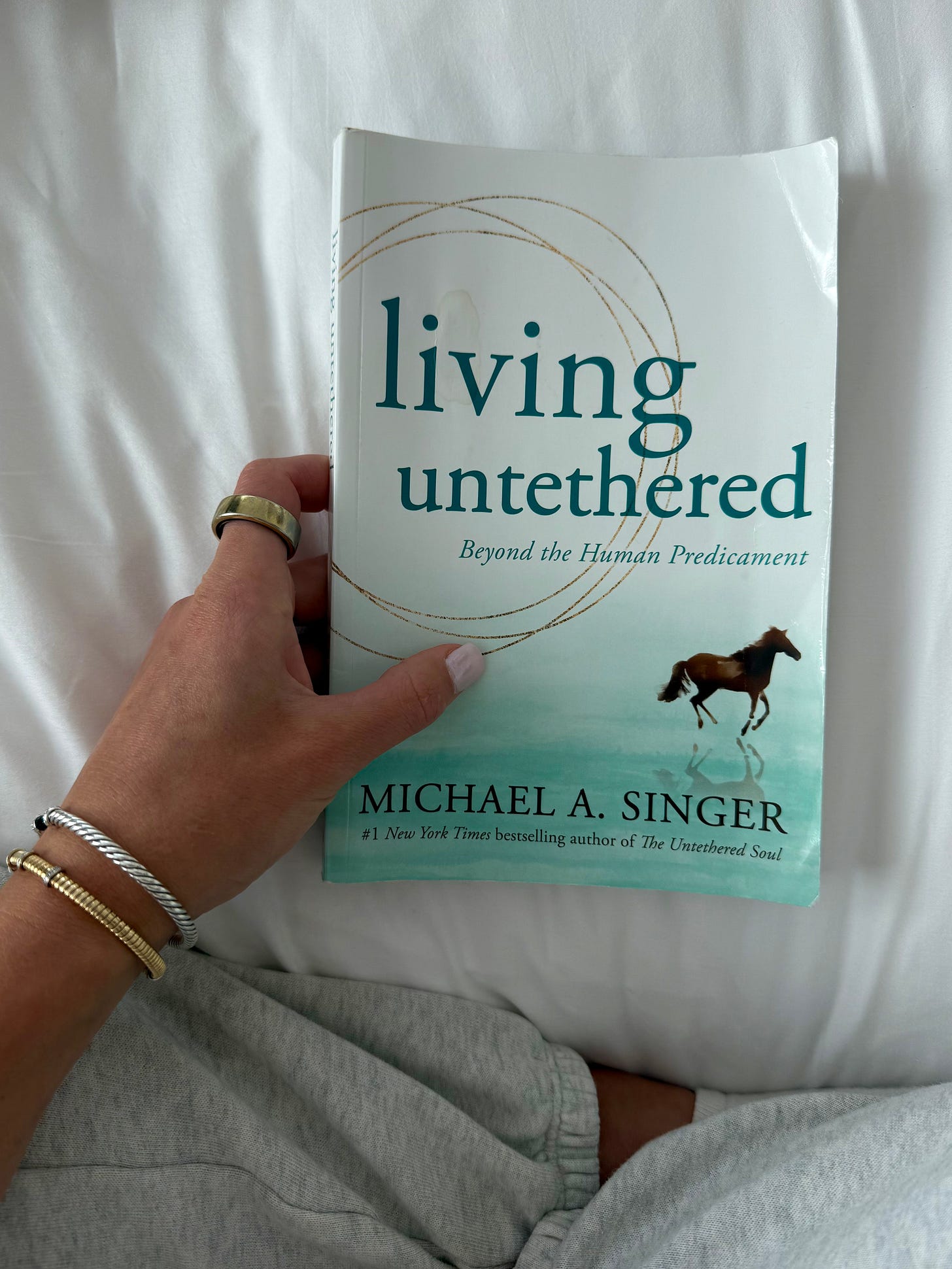When Life Doesn’t Go According to Plan: How to Let Go of Control and Find Peace
A guide to letting go and being where your feet are—especially when it’s hard
Ever since I was young, I’ve had an obsession with efficiency. I’m a Capricorn, after all—ambitious, driven, and constantly striving to make the most of every minute. I love systems, structure, and squeezing every drop of productivity out of my day. That part of me has helped me live a full, intentional life, and I’m grateful for it.
But lately, I’ve been noticing the shadow side.
The tiniest change in plans can knock me off-center, as if my entire sense of peace depends on everything unfolding exactly as I imagined. I notice my body tense, my thoughts spiral, and my mind scream: This shouldn’t be happening.
Maybe you’ve felt this too—how a deep devotion to doing can make it hard to simply be. Stillness feels uncomfortable. A delay, an unexpected interruption, even a small detour can unravel the rhythm of the day.
It’s hard to be present when you’re constantly trying to optimize the moment.
Lately, I’ve started asking myself:
What’s underneath that irritation?
Why is it so uncomfortable to not be in control?
Reading Living Untethered by Michael Singer helped me begin to understand what’s actually happening in those moments—and what to do instead.
The Pressure to Optimize Time
The other day, I had a routine appointment that should’ve taken 30 minutes. But between traffic, waiting, and the drive home, it ate up nearly three hours of my day. I felt annoyed, anxious, and behind. My carefully constructed to-do list sat there, mostly untouched. I kept thinking, This is such a waste of time.
But then I remembered something from Singer’s book:
“The moment in front of you is not bothering you. You’re being bothered by the stored energies that are being stirred up inside of you.”
I realized the moment itself wasn’t the problem. The discomfort wasn’t really about the traffic or the lost time. It was about my internal resistance—my insistence that things “should” be different. I was fighting reality, and that resistance was the true source of my suffering.
Maybe you’ve had a moment like that too. Where the situation itself isn’t a crisis, but your reaction feels disproportionately heavy. The frustration builds not because of what’s happening, but because it’s not what you expected or wanted.
The truth is: what we often label as disruptions and irritations in our day are actually invitations. Quiet moments asking us to soften, to notice, to practice presence.
Learning to Let Go
In Living Untethered, Michael Singer writes:
“Life is not something you control; it’s something you experience.”
This idea is both uncomfortable and liberating. It invites us to stop trying to micromanage life into submission and instead surrender to what’s actually unfolding. It doesn’t mean becoming passive; it means releasing our inner fight with reality.
Singer describes it this way:
“Letting go means falling behind the mind instead of going with it.”
It’s a subtle shift, but a profound one. What might become possible if we stopped labeling moments as wrong or bad—and simply let them be what they are?
Singer writes:
“If you truly want to grow spiritually, you must be willing to let go of your personal preferences and simply accept the moment in front of you.”
That line landed deeply. So often, I try to control my way into peace—managing my schedule, tweaking my environment, organizing the chaos. But real peace, the kind that lasts, doesn’t come from controlling the moment. It comes from accepting it. From allowing life to be exactly as it is.
“The mind creates the world you live in. You can either live in that world, or step back and watch it.”
That’s what I’ve been practicing. And maybe you can too. When your mind starts spinning—over a change of plans, an uncomfortable emotion, or a day that falls apart. Instead of trying to control the situation or force yourself into stillness, simply notice what the mind is doing. Watch the voice. Let it be there. And keep choosing to return to presence, again and again.
A New Kind of Practice
The work isn’t about never feeling triggered or uncomfortable. It’s about recognizing when you are, and choosing a different response.
Singer describes it like this:
“You must be willing to let go of the inner blockages and disturbances that are pulling you away from the seat of Self.”
I still lose my center. I still get swept up in urgency, irritation, and emotional noise. But more often now, I notice it happening. And in that noticing, I return—to stillness, to awareness, to the consciousness inside me quietly witnessing it all unfold.
Maybe for you, that return starts with a single breath. Or a pause. Or the willingness to see discomfort not as a problem, but as a pathway.
That’s the practice. That’s the shift.
Try This
Next time you catch yourself resisting a moment—waiting in line, stuck in traffic, doing something boring—pause. Take a breath. Notice what your mind is saying. Watch the voice without judgment.
And remember:
“You are not the voice in your head. You are the one who hears it.” —Singer
Discomfort is the Doorway
I’m still in the thick of this work. I still find myself trying to out-plan, out-perfect, or out-run the discomfort. But more and more, I’m learning that the discomfort itself is the doorway. It’s an invitation to come back to myself.
If this resonates, I’d love to hear how you’re navigating your own moments of letting go—whether in traffic, in transition, or in the sliver of space between doing and being. Feel free to reply, reflect, or share.
With love and presence, Mckenzie




Great post!
I have put Singer’s book on my ‘to be read’ list. Love the quotes.
love these quotes